Opinion
June 12: Why Humphrey Nwosu should be honored, by Ismail Omipidan

In the course of researching a story about June 12, seven years ago, I stumbled on an interview granted by the late Prof. Humphrey Nwosu, where he revealed that himself and his team worked hard to deliver a credible, free and fair election because they were promised national honours, if local and international observers could certify the election as credible. Didn’t that happen?
The man and his team not only deserve some accolades, but they deserve the national honours promised them having delivered.
Before former President Buhari’s June 6 declaration, attempts by prominent Nigerians and civil society groups to make successive administrations, from 1999 to 2015, to give recognition to June 12 met with brick walls.
Now that June 12 has been declared a Democracy Day, the celebration will be incomplete without honouring Nwosu and his team, who conducted the election that saw Nigerians filed out in an unprecedented manner to cast their ballot for Abiola and Kingibe, who were both Muslims. In the contest, Abiola ran against Alhaji Bashir Tofa of the National Republican Convention (NRC), with Dr. Sylvester Ugoh as his running mate. Abiola/Kingibe contested on the platform of the SDP.
Unlike today, where the Nigerian electorate bothers about the religious and ethnic inclinations of candidates, nobody cared about this in 1993, as the majority of voters lined behind Abiola and Kingibe in the historic June 12 presidential election.
In that election, which Abiola and Kingibe were adjudged to have won, the federal Military Government ordered the stoppage of the release of results and consequently annulled the entire results.
Speaking for the first time on the matter in public in 2014, chairman of the defunct National Electoral Commission (NEC), the late Prof. Humphrey Nwosu, revealed that himself and his team worked hard to deliver a credible, free and fair election because they were promised national honours, if local and international observers could certify the election as credible.
Explaining how he put his life on the line, first to ensure that the election held, after the earlier injunction to stop it, and later to push through the court to ensure the final result was announced by NEC, Nwosu said: “Halfway, as the results were being collated, Abuja High Court, presided by the chief judge of Abuja, came out with a decision that the results of the election should no longer be announced. This time, the national commissioners were around. We mounted a big board at the headquarters of the commission, where the results were recorded and announced publicly, Abiola, Tofa – Abiola was leading.
” I told you the military was divided. The same pro-Abacha group met at the National Defence and Security Council and summoned me and asked if this was the way Nigerians would be hearing about this election through the signboard. I said: ‘this is the provision of the law, to make it transparent. I don’t interfere, no one does, this is what Decree 13 approves.’
“Abacha said, ‘so you went ahead to conduct the election, which the court said you shouldn’t conduct? Go and dismantle the board.’ You know it was a military regime. In fact, at the point we received this, almost all the results were in. The only result remaining was Taraba, out of the 30 states of the federation; that was about June 15. It was when I was coming out of Aso Rock that I was served the court decision by a Commissioner of Police. I went back to the commission’s headquarters; the Taraba man, was just coming in with the result.”
Nwosu said he called an emergency meeting to discuss how to vacate the judgement of the court and conclude their job. But there was no one to do it for him, since, according to him, the Attorney-General at the time, Clement Akpambo, agreed with the government to suspend the process.
He said while that was going on, government had also set up the Abacha committee to look into the election matter and advise it on way forward.
According to Nwosu, the committee had David Mark, former Senate president; Murtala Nyako, former governor of Adamawa State, who was next in command to Abacha in the committee; Gen. Aliyu Mohammed; Akilu; secretary to the commission; Akpamgbo and himself.
“When we got to Abacha’s residence, another sub-committee was set up, a smaller committee comprising Akilu, Akpamgbo, I, secretary to the commission, Aliyu Umar, who is late now, and director of legal services (Buhari Bello). When we got there, I told them we had no business challenging the process, as the law had already set out the process, and anything we did would be outside the law. The law provides that the result should be released and if anyone objects to it, he should go to the tribunal. I said if the government, which is the highest sovereign authority representing the people of Nigeria, wanted a political solution, the winner was Abiola, so they should invite Abiola and negotiate with him. They said we should go back and report to the larger committee, which Abacha headed. I told the chairman of the committee we were a technical body set up to conduct and release election results; we were not a political body, that Abiola had won the election and the only result not collated was that of Taraba. I said if they wanted political negotiation they should invite Abiola.
“Abacha shouted on me, saying: ‘you went ahead with an election the court said you shouldn’t hold; you are not even a member of the National Defence and Security Council. You are telling us what to do. Who are you? Call your commissioners to appear before the National Defence and Security Council.’ It was the era mobile telephone was just beginning in Nigeria and David Mark was the Minister of Communications. I was about to call them; then, he said I should tell him the name of my personal secretary and he would do that for me. It was he who called my secretary, Andrew Umanah, to tell the national commissioners they were wanted in Aso Rock.”
Nwosu further said: “I, Professor Ideria, Bello, Umar arrived Aso Rock and were put in a room pending the arrival of my other colleagues. As soon as they arrived, we joined the others, Babangida was presiding. He said, ‘what is your official position regarding the election, the court says don’t announce.’ I asked the president to give us three minutes to confer so that whatever we came out with will be the decision of the commission and not my personal opinion. I reminded my colleagues the enormity of the national assignment on our hands and how we were even promised national honours if we got it right, and we were getting it right until the sudden changes. I told them we must vacate the judgement and have legal authority to complete the announcement of the results so that we are not seen as undertaking an illegal task, by going to the Court of Appeal in Kaduna. We agreed on this position. This was what we announced to the body and they said, ‘you are now on your own.’
“Now, who would have gone to the court for us, it was the Attorney-General, but he was not available. I took the initiative and Bello went to the appeal court in Kaduna quietly within the next two days and appealed. The court was summoned. Abiola was represented by GOK Ajayi. Tofa was also represented, and we submitted all the results showing that Abiola won the election. Were it to be in the United States, the journalists would have published the results. Where were Nigerian journalists? They were only busy saying Humphrey collaborated with Babangida rather than following the sequence of events. All the results were submitted to Okey Achike’s court – he was heading the appeal court.
“In its preliminary meeting, the court agreed that the Abuja High Court had no business interfering with Decree 13. It said there was a procedure on how results should be released and if anyone was not satisfied they could go to the tribunal, not the High Court. The appeal court gave a date, June 25, for accelerated hearing of the case so that we could conclude the good work we started.
“But on June 23, 1993, they dissolved my commission. No court or journalist has commented on the dissolution of NEC on June 23 when the court would have sat on June 25. I submitted all the results showing that Abiola won. His lawyer, Ajayi, would have seen the result, and any investigative journalist would have seen it. If it were the United States, Britain or any of the Western democracies, they would have queried why Humphrey and members of the commission were sent away with nothing, no severance allowance, nothing! That was how our journey, fighting for Nigeria, ended. And people are saying I collaborated with Babangida. Tell me what any reasonable Nigerian would have done under that circumstance? And throughout Abacha’s rule, almost five years, he never agreed that that election should have been conducted. His Minister of Information is there; he was always calling it an illegal election. What have Nigerian journalists done about all these? I played my part. And that is why I don’t talk much.”
Reading his own account, it would be most unfair to deny Nwosu the honour on the account of the annulment which was obviously beyond him. I, therefore, endorse the move to immortalise the late Nwosu.
-
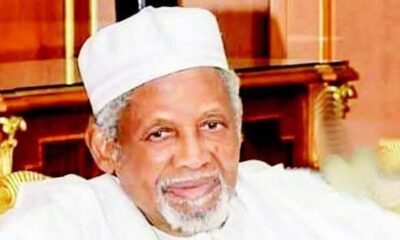
 National News1 day ago
National News1 day agoBreaking: Popular businessman Aminu Dantata announced dead
-
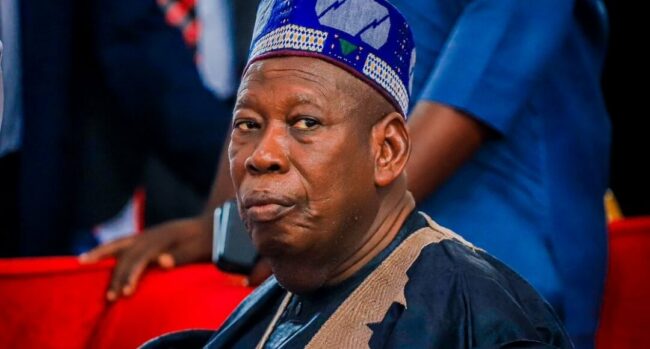
 Politics1 day ago
Politics1 day agoAPC confirms Ganduje’s resignation, appoints acting national chairman
-
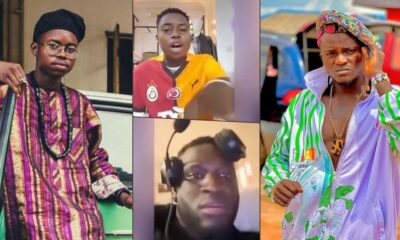
 Entertainment1 day ago
Entertainment1 day agoHe blocked me after I helped him,” TikToker Peller accuses Portable of betrayal
-
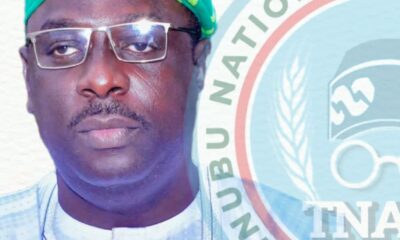
 Politics1 day ago
Politics1 day agoGanduje’s resignation: Rebalancing power, safeguarding 2027, by Dauda Adamu
-
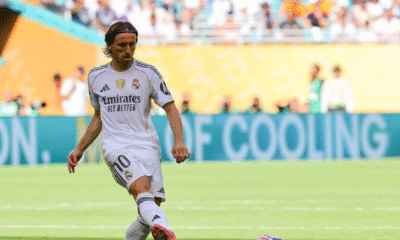
 Sports1 day ago
Sports1 day agoReal Madrid: Modric makes history at Club World Cup
-
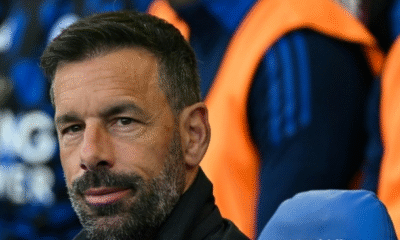
 Sports2 days ago
Sports2 days agoVan Nistelrooy leaves relegated Leicester
-
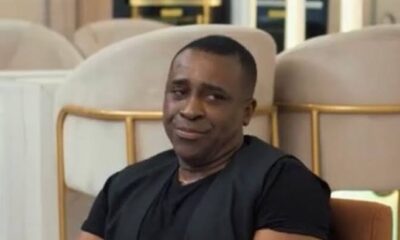
 Entertainment1 day ago
Entertainment1 day agoFrank Edoho opens up on second marriage crash
-
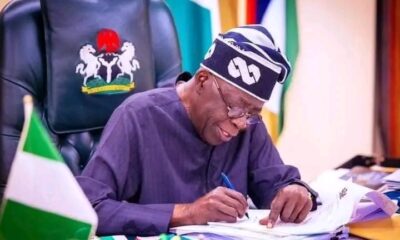
 National News2 days ago
National News2 days agoTinubu announces new appointment





















